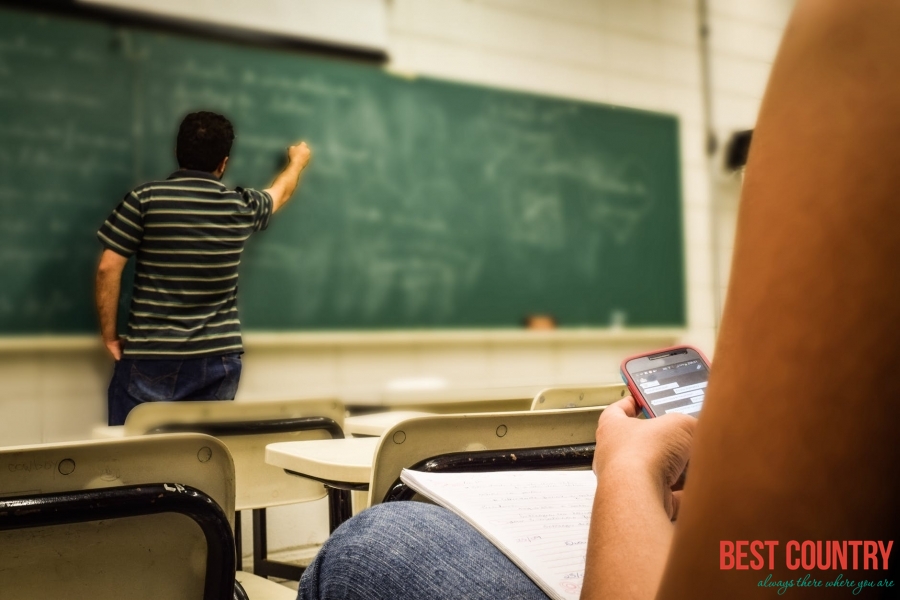Education in Benin

A far greater percentage of boys are enrolled in school than girls: in 1996, the gross primary enrollment rate for boys was 88.4 percent as opposed to 55.7 percent for girls; the net primary enrollment rates were 71.6 percent for boys and 46.2 percent for girls.
Primary school attendance rates were unavailable for Benin as of 2001. While enrollment rates indicate a level of commitment to education, they do not always reflect children's participation in school.
Because of a rapid increase in the enrollment rate, the student/teacher ratio rose from 36:1 in 1990 to 53:1 in 1997. The overall adult literacy rate is nearly 40%. Only 25% of women in Benin are literate.
School system
The Republic of Benin operates on a 6-4-3-3-4 system:
Primary school: 6 years
Junior high school: 4 years
Senior high school: 3 years
Bachelor's degree: 3 years
Master's degree: 4 years
Education is compulsory for children between ages six and eleven. After spending two to three years in kindergarten, it takes six years for them to complete and take the primary school certificate.Overall it requires seven years to complete both junior and senior high school.
At the end of the four first years of junior high school, the students have to take the O-level (Brevet d’Etudes du Premier Cycle: BEPC). Then after three years the students have to take the A level (Baccalauréat: BAC) exam which is the equivalent of the U.S. high school diploma.
There are five vocational schools, located in five of the twelve provinces: Atlantique littoral (City of Cotonou), Oueme Plateau (city of Porto-Novo), Zou Colline (city of Bohicon) Borgou (city of Parakou), Mono Couffo, Atakora, Donga and Alibori.
Grading system
The grading system is from 0 to 20, with 20 being the highest grade.
Passing grade: 10
Fairly good grade: 12
Good grade: 14-15
Very good grade: 16-17
Excellent: 18-20
Languages of instruction
French, the official language of Benin, is generally the language of instruction.
Leading public high schools
Cotonou:
High School of Gbegamey
High School of St Rita
High School of Dantokpa
High School of Akpakpa
Porto-Novo:
High School of Application:
High School of Lokossa
High School of Houffon
High School of Mathieu Bouquet (Borgou)
High School of CEG1 Natitingou (Atakora)
High School of Djougou (Donga)
Higher education
The National University of Benin maintains ten branches:
The Campus of Abomey Calavi
The Faculty of Economics and Management (FASEG)
The Faculty of Law and Political Science (FADESP)
The Faculty of Arts and Social Science (FLASH)
The Faculty of Science and Technology (FAST)
The Faculty of Health Science (FSS)
The University of Parakou (UNIPAR)
The School of Applied Economics and Management (ENEAM)
The National School of Administration and Prosecutor Training (ENAM)
The Poly Technical School of Abomey Calavi (EPAC)
The Teachers’ Training School of Porto-Novo (ENS)
The Institute of Mathematics and Physics (IMSP)
The Faculty Agricultural Science (FSA).
Each branch is headed by a university president.
Some private higher institutions are also accredited by the Ministry of National Education. Altogether 94 higher institutions are accredited.